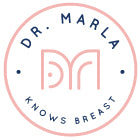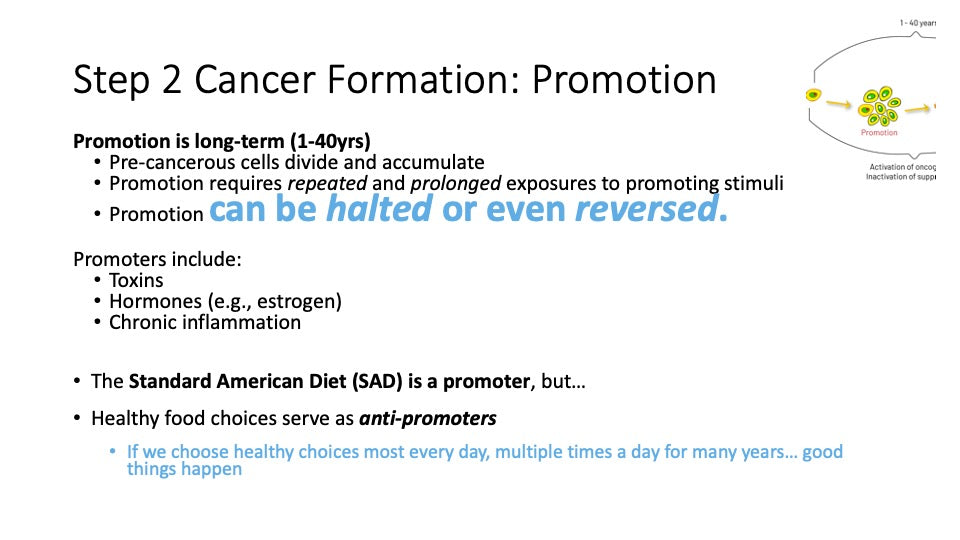
Promotion
The second step in cancer formation is known as promotion. The promotion stage provides the stimulation necessary for the microtumors to proliferate. The promotion stage is considered to be a relatively lengthy and reversible process, over 1-40 years, in which actively proliferating pre-cancerous cells accumulate.
The subsequent changes of an initiated cell leading to cancer transformation may involve more than one step and requires repeated and prolonged exposures to promoting stimuli.
For an initiated cell, the promotion process can be inhibited or stimulated by chemo-preventative agents, lifestyle choices, emotional stress, and environment. Initiated cells are susceptible to the effects of promoters such as toxins, hormones, and chronic inflammation (which can be an initiator and a promoter), all which promote the proliferation of the mutated cells, giving rise to a large number of daughter cells containing the mutation.
Additional DNA damage accumulates these abnormal cells, which are able to avoid programmed cell death known as apoptosis. Inflammatory cells are recruited in this stage, and control of normal cell growth is lost. Interestingly, promoters have no effect where initiation has not first taken place.
Promoters are often specific for a particular tissue, like the known hormone driving effects of estrogen in breast cancer. The good news is that the promotion stage can be halted or even reversed.
The initiated cell can remain dormant unless it is stimulated by promoters. Did you know that on autopsy 33% of women were noted to have breast tumors and 40% of men had prostate tumors. We all have tumors, but they may remain dormant and not become clinically significant.
Promotion is long-term (1-40yrs)
- Pre-cancerous cells divide and accumulate
- Promotion requires repeated and prolonged exposures to promoting stimuli
- Promotion can be halted or even reversed.
Promoters include:
- Toxins
- Hormones (e.g., estrogen)
- Chronic inflammation
- Promoters are often specific for a particular tissue, like the known hormone-driving effects in breast cancers
- The Standard American Diet (SAD) is a promoter, but…
- Healthy food choices serve as anti-promoters
- If we choose healthy choices most every day, multiple times a day for many years… good things happen
The standard American diet is a promoter, but healthy food choices and certain nutraceuticals (natural products that have been shown to have beneficial effects on the body and against diseases like cancer) serve as anti-promoters.
This is great news! Our bodies are built to handle limited acute insults, but chronic exposure to the insult is harmful. If we eat unhealthy food or expose ourselves to harmful substances every day, multiple times a day for many years – you get the picture of how these choices can cause health issues. But if we choose healthy choices most every day, multiple times a day for many years, we will have the upper hand on disease!
Understand the next step in cancer formation, progression and ultimately metastasis, in the next blog.

